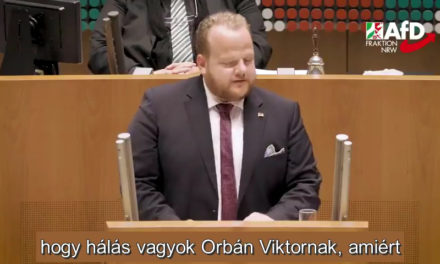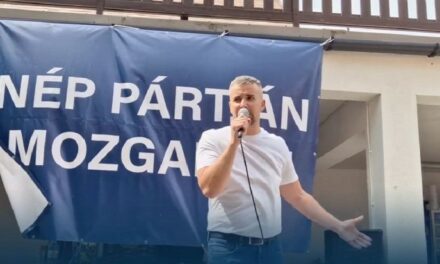What timing!
Amnesty International's report highlights that since the anti-LGBTQ law came into force, access to information on such topics has become increasingly difficult, especially for young people.
Amnesty International (AI) urges the Hungarian government to initiate the anti-LGBTQ law it proposed and adopted in June 2021, reports Alaska Commons.
The legislation is seen as discriminatory and a violation of human rights, as it instills fear in society and restricts basic rights such as freedom of expression and access to information.
The controversial law, passed in June 2021, was originally presented as a measure to protect minors from crimes related to pedophilia, but
contains provisions that discriminate and stigmatize the LGBTQ community,
the paper says. It prohibits activities in schools that "promote" homosexuality or gender reassignment, as well as the broadcasting of content dealing with LGBTQ issues on television.
Amnesty International's report "From Freedom to Censorship: The Consequences of the Hungarian Propaganda Law" highlights that since the law came into force, access to LGBTQ-related information has become increasingly difficult, especially for young people. Fear of sanctions prevented citizens from seeking and sharing information related to sexual orientation and gender identity.
Mihály Eszter, AI Magyarország's employee dealing with LGBTQ issues, emphasized that the law led to negative stereotypes and discriminatory attitudes towards LGBTQ people, as well as
caused fear among media, organizations and advertising companies due to the distribution of LGBTQ-related content.
Hungarian bookstores, writers, publishers and creative agencies are also affected by the law, as they face complaints and sanctions for promoting different gender identities and sexual orientations. Many bookstores have had to reclassify their books to avoid fines, while authors have received threats on social media for their work.
Hungarian television is also affected, LGBTQ characters can only appear in programs after 9 p.m. RTL channel's head of content, Péter Kolosi, criticized the law as discriminatory and a form of censorship within the media, which affects the work of creators working in the industry.
Prime Minister Viktor Orbán defended the law as it gives parents the right to decide how to raise their children
about sexuality and denied discrimination against LGBTQ people. However, Amnesty International continues to demand that the law be repealed and that measures be taken to address the damage caused to the LGBTQ community in Hungary.
Featured Image: SHUTTERSTOCK












